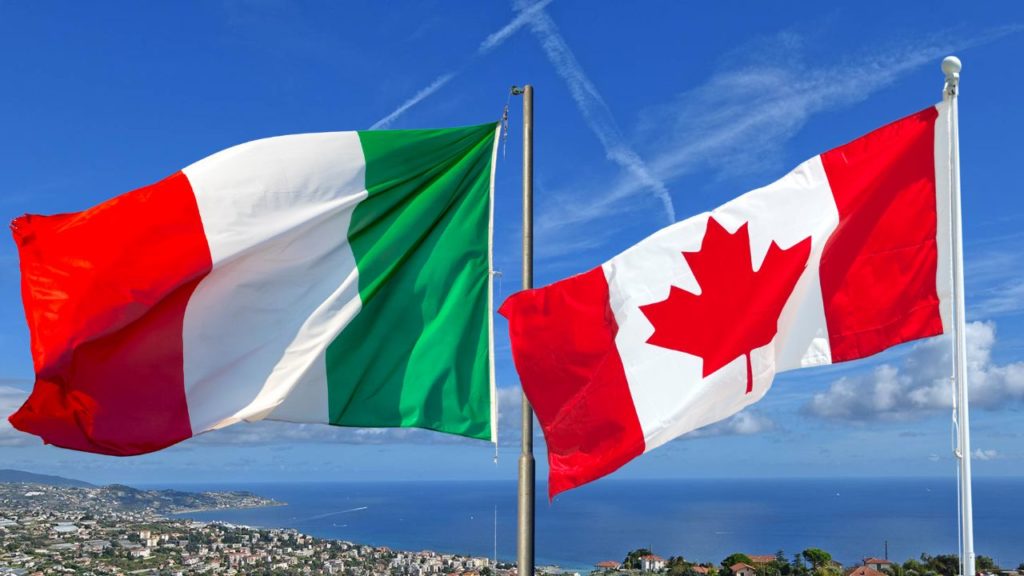Pourquoi l’Italie devient de plus en plus attractive pour les Français souhaitant acheter un bien immobilier

L’Italie séduit un nombre croissant de Français désireux d’investir dans l’immobilier, que ce soit pour une résidence secondaire, un futur projet de retraite ou un véritable changement de vie. Mais au-delà de son charme incontestable, de sa gastronomie, de ses paysages et de son climat, ce sont surtout des considérations économiques, fiscales et patrimoniales qui font de l’Italie une destination de choix.
Une fiscalité d’acquisition nettement plus avantageuse
En matière d’acquisition, l’Italie propose un cadre fiscal bien plus attractif que celui en vigueur en France. Le coût global d’un achat, incluant taxes et frais de notaire, y est sensiblement réduit.
À titre d’exemple, les frais de notaire en Italie varient généralement entre 2 % et 4 % du prix d’achat, contre 7 % à 8 % en France (où sont inclus les droits de mutation et les émoluments du notaire).
De toute façon, en Italie, les droits d’enregistrement ne sont pas calculés sur le prix d’achat réel, mais sur la valeur cadastrale du bien, une valeur fiscale officielle fixée par l’administration. Cette valeur est généralement bien inférieure au prix commercial : en Ligurie, elle se situe souvent entre 30 % et 50 % du prix de marché, ce qui allège considérablement la fiscalité.
Cette valeur cadastrale, inscrite au registre foncier local (Catasto), est utilisée pour déterminer les impôts liés à la propriété. Ce système fiscal est particulièrement avantageux lorsqu’il s’agit d’un achat en tant que résidence principale, puisqu’il donne droit à une réduction des droits d’enregistrement (de 9 % à 2 %) et à l’exonération totale de la taxe d’habitation.
Une fiscalité immobilière favorable
L’Italie offre également des avantages fiscaux notables pour les investisseurs immobiliers :
Exonération des plus-values : La vente d’un bien immobilier détenu depuis plus de 5 ans est exonérée d’impôt sur la plus-value, contrairement à la France où l’exonération totale n’intervient qu’après 30 ans de détention. Alors que la vente d’un bien immobilier acquis en tant que résidence principale est exonérée d’impôt sur la plus-value.
Régime simplifié des revenus locatifs : la “cedolare secca” permet une imposition forfaitaire de 21 % sur les loyers perçus, offrant un régime simple et souvent plus avantageux que le système progressif français.
Ces dispositifs rendent l’investissement locatif en Italie à la fois plus souple, plus lisible et souvent plus rentable.
Des droits de succession bien plus doux
L’Italie se distingue par une fiscalité successorale nettement plus favorable. Les transmissions en ligne directe (conjoints ou enfants) bénéficient d’un abattement de 1 million d’Euros par héritier, au-delà duquel le taux d’imposition n’est que de 4 %. En comparaison, la France applique un abattement de seulement 100.000 Euros par enfant, avec des taux pouvant atteindre jusqu’à 45 %, voire 60 % dans certains cas. Dans touts les autres cas, en Italie, il faudra payer le 2% d’impôt cadastral (réduit à un minimum de seulement 200 Euros) et le 1% de taxe hypothécaire (également réduit à un minimum de seulement 200 Euros).
Par ailleurs, une convention fiscale franco-italienne évite toute double imposition, un atout non négligeable pour les familles disposant de biens dans les deux pays.
Des prix immobiliers souvent plus accessibles
Outre la fiscalité, les prix de l’immobilier en Italie restent compétitifs par rapport à la France, notamment dans des régions aussi charmantes que la Ligurie. Il est possible d’y acquérir de magnifiques maisons de caractère, souvent avec jardin, vue mer ou piscine, à des prix bien inférieurs à ceux pratiqués sur la Côte d’Azur ou en Provence.
Un engouement croissant pour les demeures typiques et le patrimoine
Les acheteurs français manifestent un intérêt croissant pour les propriétés au charme authentique : maisons en pierre, palazzi historique. L’Italie, avec sa richesse architecturale et culturelle, offre un cadre de vie unique. La dimension patrimoniale et historique du bien devient un critère d’achat central, autant que son potentiel de valorisation ou sa rentabilité locative.
L’Italie s’impose comme une destination idéale pour les Français à la recherche d’un investissement sécurisé, d’une fiscalité plus légère, ou tout simplement d’un art de vivre raffiné. Grâce à ses conditions d’acquisition avantageuses, à son régime fiscal attractif, à ses prix encore accessibles et à la richesse de son patrimoine, elle se positionne aujourd’hui comme l’une des meilleures alternatives en Europe pour investir ou s’installer à long terme.
La Ligurie, un choix naturel pour les Français
Pour les acheteurs français, la Ligurie s’impose comme une destination de choix. Proche de la Côte d’Azur et de villes comme Nice ou Monaco, cette région italienne bénéficie d’une accessibilité incomparable, notamment grâce à l’aéroport international de Nice. La Ligurie offre un cadre de vie idyllique avec ses villages côtiers pittoresques, ses plages, ses collines verdoyantes et ses panoramas spectaculaires. De plus, la proximité géographique favorise les allers-retours fréquents, et la présence de nombreux habitants et commerçants francophones facilite les échanges au quotidien. Cette région conjugue ainsi charme italien, hospitalité, et une véritable continuité culturelle et linguistique pour les acheteurs français.
Prêt à acheter votre bien immobilier en Ligurie ?
Contactez notre équipe d’experts francophones chez LiguriaHomes Casamare pour découvrir nos meilleures opportunités: www.liguriahomes.fr
Pour en savoir plus sur l’achat immobilier en Italie, consultez notre guide complet en ligne : Acheter en Italie – Guide pour les Français. Vous y trouverez toutes les informations essentielles pour réussir votre projet immobilier, de la recherche du bien idéal aux démarches administratives.






